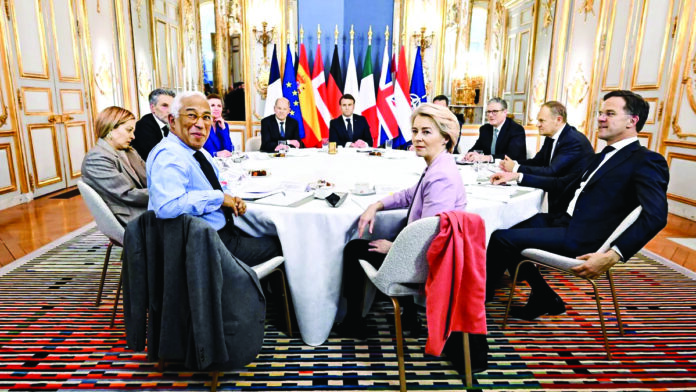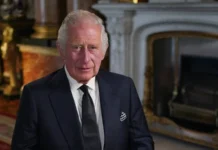EU finds itself in uncharted waters. It needs its own trump card to navigate the Trump era.
The Munich Security Conference 2025 closed with its chairman, Christoph Heusgen, on the brink of tears—or was he driven to them? Is Europe waking up from a nightmare, or to one? Is it feeling hopeless or helpless? Is Europe leaning left, or returning to the right? The European enervation and exasperation at the Munich conference, as they listened to US Vice President J.D. Vance’s rebuke, was palpable. They felt that Vance was vindictively trying to gnaw at the EU’s proud identity as one of the most equal, egalitarian, liberal, and open societies in the world.
With Trump’s eccentric and whimsical approach to Europe’s biggest crisis, the Russia-Ukraine war, the EU now finds itself in uncharted waters. It needs its own trump card to navigate the Trump era.
SHERIFF’S MESSAGE
Naturally, while the Europeans felt chagrin, at least a few countries must be feeling glee and growing giddy over the message—countries that share a similar sentiment but dare not express it. These countries have long been peeved by the EU’s didactic attitude towards them on issues like democracy, rights, and freedoms. Not to mention the think tanks and other sanctimonious custodians of democracy, exhorting them about which path to follow to achieve not just a higher standard of living but also a higher standard of thinking.
EUROPEAN RIGHT & MEGA
Sheriff’s message was also meant to bolster the EU right wingers, who till recently had been pushed out of the mainstream political discourse by centrifugal forces of the left, liberal, woke type narratives. Right wingers have long felt disgruntled that simply talking about issues like immigration and integration got them labelled as racist and xenophobic. Trump’s win has shown them a model to emulate. Perhaps they too can galvanise their constituency by offering simple salacious solutions to substantial problems. They might think that their own MEGA hat could turn them from a rising to a winning political force.
DEMOCRATIC DECLINE IN THE EU
From the outset it should be clear that Europe’s democratic freedoms, values and institutions are sinewy. In a very short timeframe a number of geopolitical shifts and technological transformations have occurred. So like the rest of the world,
Europe is going through its own 21st century renaissance of sorts. Yes, the Europeans have been somewhat languid and lost in ideals overlooking the lurking realities, but recalibration has started, a slow but sure process.
IMMIGRATION & INTEGRATION IN THE EU
Human history is a history of human migration. Humans have moved repeatedly in search of resources and opportunities. Given the EU’s declining demographic dividend, immigration is an operational necessity. High standards of living an outcome of a generous welfare system for all is sustained by robust tax contributions. Those who immigrate to the EU have the advantage of enjoying the benefits of the system without the burden of building it from scratch, so long as they can participate socioeconomically and appreciate European values. Or as Charles de Gaulle said, “The truth is that Europe’s future lies in the hands of those who are prepared to live as Europeans.”
INDIA & THE NEW EUROPE
Dr S. Jaishankar summed India’s perspective well when he said, “I do think different societies have their own cultures, their own values, their own ways to doing things and the idea that there is some kind of one truth, one judgment, and one norm that should be preached, propagated, evaluated and judged, I think that is one of the biggest issues we are having today with politics”.
There is a profound knowledge gap between both sides that causes needless friction. The EU needs to stop tutoring India. Instead the EU should educate themselves about India and its contexts and vice versa. Foundations of long term strong relations should be serious study not superficial knowledge about each other.
INDIA, EU, CHINA
India and the EU are on the same riverbank, though in separate tents, while the EU and China stand on opposite shores. Economic interests drive EU-China relations, making them inherent competitors. In contrast, India and the EU share both interests and values, akin to the EU-US dynamic. They can compete while complementing each other.
The Danish PM echoed the EU, stating that Europe must grow its economy to boost defence and security spending. India can complement the EU by strengthening economic ties, while the EU benefits from investing in India’s growing economy.
* Rajesh Mehta is a leading International affairs expert & Manu Uniyal is a media consultant and a writer based in Sweden.







